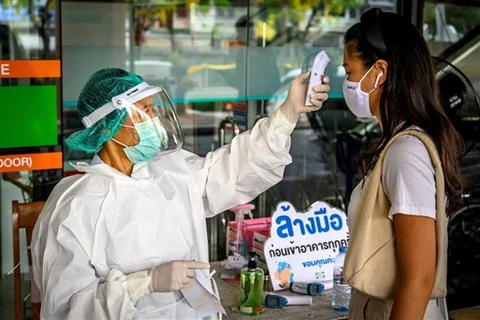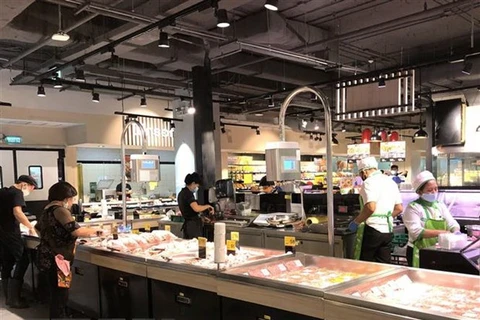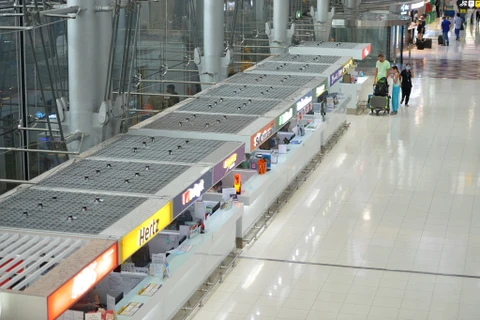 Robots that use UV light to disinfect were introduced to tackle virus and drug-resistant bacteria at Bumrungrad International Hospital during the Covid-19 outbreak. (Photo: .bangkokpost.com)
Robots that use UV light to disinfect were introduced to tackle virus and drug-resistant bacteria at Bumrungrad International Hospital during the Covid-19 outbreak. (Photo: .bangkokpost.com)
Bangkok (VNA) - As Thailand begins to gradually ease coronavirus-related restrictions, the government is looking to cement the country's position as an advanced medical hub in Asia.
Thailand's response to the coronavirus pandemic has been aided by a robust healthcare system, which was ranked sixth out of 195 countries in the 2019 Global Health Security Index, calculated by researchers at the Nuclear Threat Initiative and Johns Hopkins Centre for Health Security.
This meant Thailand was the highest ranked emerging economy and the top Asian country in the index, which was devised to measure a country's preparedness for a pandemic.
Prior to the outbreak of Covid-19, Thailand was already working to establish itself as the medical hub of Asia with the 2016-25 strategic plan entitled “Thailand: A Hub of Wellness and Medical Services.”
Thailand is already popular as an international healthcare tourism destination, and the push to further develop the medical ecosystem has been partly driven by an ageing population, which will result in increasing domestic demand for quality healthcare services.
As the global pandemic has added further strains to frontline health services and back-end supply chains, the Board of Investment (BoI) announced additional measures in April to accelerate investments in the medical industry, which could have positive implications for the sector's broader strategic goals.
Complementing the existing tax holiday of between 3-8 years for qualified medical device, equipment and supply businesses, the new measures include a 50 percent reduction in corporate income tax for a further three years.
This additional incentive is available to firms that apply before June 30 and begin production before Dec 31.
Furthermore, manufacturers that adjust existing production lines to manufacture medical devices or parts will be exempted from import duties on machinery in 2020, provided they apply before September.
Additional tax benefits are being offered to companies producing non-woven fabric used to manufacture medical masks or devices.
These measures are aimed at a fast response to this specific situation, but were designed to also pave the way for longer-term development, BoI secretary-general Duangjai Asawachintachit said.
Paul Ashburn, co-managing partner of the business consultancy BDO Thailand, said Thailand already had a head start, so it is well-placed to capitalise on increased regional demand over the next 12 months.
As such, affluent patients from neighbouring countries are likely to still seek medical treatment in Thailand's superior facilities once border restrictions are eased, even if it may take longer for medical tourists from other core markets in the Middle East, US, Europe and the Indian subcontinent to return en masse.
In addition, as many of Thailand's neighbours will not be able to immediately count on domestic production to stockpile personal protective equipment and necessary medical supplies in the wake of the pandemic, Thailand will be an obvious source market due to its production capacity and close proximity./.























